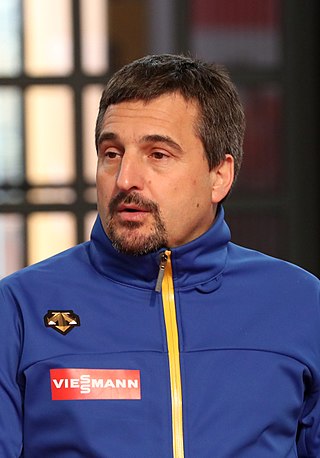
Georg Hackl, often named Hackl Schorsch, is a German former luger who was three time Olympic and World Champion. He is known affectionately as Hackl-Schorsch or as the Speeding Weißwurst, a reference to what he looks like in his white bodysuit coming down the luge at fast speeds.

Andreas Linger is an Austrian former luger who competed internationally since 2000. He and his younger brother Wolfgang began luging at a very young age, and did their first doubles run when they were 14. Linger has won five medals at the FIL World Luge Championships with three golds and two bronzes. He also earned seven medals at the FIL European Luge Championships with a gold, three silvers, and three bronzes. The Lingers were overall Luge World Cup men's doubles champions in 2011-12 and scored 15 World Cup race victories. They were two time Olympic champions in the men's doubles event at the 2006 Winter Olympics in Turin, Italy and the 2010 Winter Olympics in Vancouver, British Columbia, Canada. They won in 2006 despite Wolfgang having broken his leg in a luge crash the previous year. In 2010, they successfully defended their gold medal against another team of brothers, Andris and Juris Šics of Latvia.
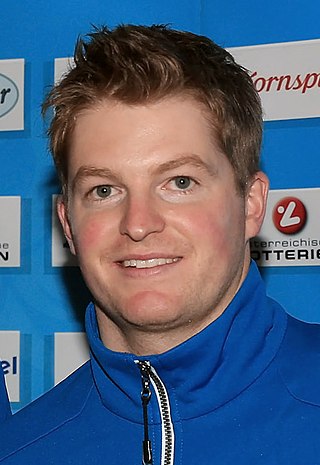
Wolfgang Linger is an Austrian former luger who competed internationally since 2000. As young children, he and his older brother Andreas learned to luge on a former Olympic luge track, and at age 14 began competing as a doubles team for the first time. Linger has won five medals at the FIL World Luge Championships with three golds and two bronzes. He also earned seven medals at the FIL European Luge Championships with a gold, three silvers, and three bronzes. The Lingers were overall Luge World Cup men's doubles champions in 2011-12 and scored 15 World Cup race victories. In 2005, he broke his leg in a crash, but the next year at the 2006 Winter Olympics in Turin, Italy won the gold medal in doubles luge. He repeated this feat at the 2010 Winter Olympics in Vancouver, Canada, defeating another team of brothers, Andris and Juris Šics of Latvia.
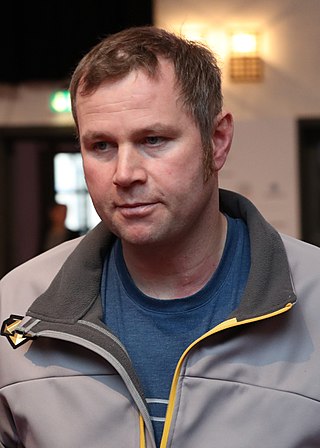
Patric-Fritz Leitner is a German former luger who competed from 1998 to 2010. Together with Alexander Resch he won the men's doubles event at the 2002 Winter Olympics in Salt Lake City. They also competed at the 2006 Winter Olympics, finishing sixth. At the 2010 Winter Olympics in Vancouver, they won bronze in their last race.

Natalie Geisenberger is a German luger. Widely regarded as one of the greatest lugers of all time, she is a nine-time World champion and six-time Olympic champion.
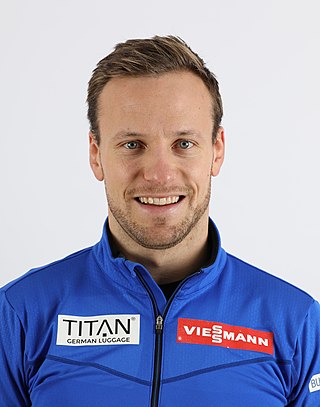
Tobias Arlt is a German luger, acting as a back driver. He won a silver medal in the men's doubles event at the 2008 FIL World Luge Championships, a silver and a bronze at the 2010 FIL European Luge Championships, a gold medal at the FIL World Luge Championships 2013, and two gold medals at his debut Olympics, the 2014 Winter Olympics in Sochi.
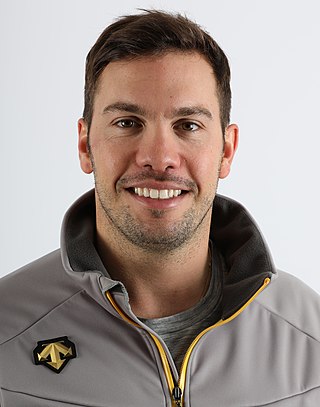
Tobias Wendl is a German luger who has competed since 1993, acting as a front. He won a silver medal in the men's doubles event at the 2008 FIL World Luge Championships in Oberhof, Germany, a silver and a bronze at the FIL European Luge Championships 2010 in Sigulda, a gold at the FIL World Luge Championships 2013, and two gold medals at his debut Winter Olympics at the 2014 Winter Olympics in Sochi. He is also a Master Sergeant in the German Army.

Johannes Ludwig is an Olympic gold medal-winning German luger who has competed since 1996. He won a bronze medal in the Team relay event at the FIL European Luge Championships 2010 in Sigulda. At the 2018 Winter Olympics, held in Pyeongchang, South Korea, Ludwig won the bronze medal in the men's singles luge and the gold in the team relay luge, along with his teammates Natalie Geisenberger, Tobias Wendl, and Tobias Arlt. Then at the 2022 Winter Olympics in Beijing, he won the gold medal in the Men's singles race.
The doubles luge event at the 2010 Winter Olympics was held on 17 February at the Whistler Sliding Centre in Whistler, British Columbia. Twenty teams participated. Austrian brothers Andreas and Wolfgang Linger, the defending Olympic and European champions, won the gold medal. The silver medal was also won by a pair of brothers, Andris and Juris Šics of Latvia. Germans Patric Leitner and Alexander Resch clinched the bronze medal after edging out Italians Christian Oberstolz and Patrick Gruber, who were in third place after the first run.
The 2013–14 Luge World Cup was a multi race tournament over a season for luge organised by the FIL. The season started on 16 November 2013 in Lillehammer, Norway and ended on 26 January 2014 in Sigulda, Latvia. After the World Cup, the athletes moved for two weeks to Sochi for the Luge event in the XXII Olympic Winter Games.

Julia Taubitz is a German luger.

Germany competed at the 2022 Winter Olympics in Beijing, China, from 4 to 20 February 2022.
Luge at the 2022 Winter Olympics was held at the Xiaohaituo Bobsleigh and Luge Track which is one of the Yanqing cluster venues between 5 and 10 February 2022.
The following is about the qualification rules and the quota allocation for luge at the 2022 Winter Olympics.
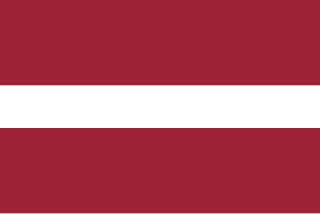
Latvia competed in the 2022 Winter Olympics in Beijing, China, from 4 — 20 February 2022, gaining 1 medal.
The four-man competition in bobsleigh at the 2022 Winter Olympics was held on 19 February and 20 February, at the Xiaohaituo Bobsleigh and Luge Track in Yanqing District of Beijing. Francesco Friedrich, Thorsten Margis, Candy Bauer, and Alexander Schüller of Germany won the gold medal, and Friedrich thereby successfully defended his 2018 Olympic title. Germany-2 driven by Johannes Lochner won the silver medal, and Canada-1, driven by Justin Kripps, won the bronze.
The men's singles competition in luge at the 2022 Winter Olympics was held on 5 February and 6 February, at the Xiaohaituo Bobsleigh and Luge Track in Yanqing District. Johannes Ludwig of Germany won the event. For him this was the first individual Olympic gold medal. Wolfgang Kindl of Austria won the silver, and Dominik Fischnaller of Italy bronze. For Kindl and Fischnaller also, these were their first Olympic medals.
The women's singles competition in luge at the 2022 Winter Olympics was held on 7 February and 8 February, at the Xiaohaituo Bobsleigh and Luge Track in Yanqing District. The defending champion Natalie Geisenberger of Germany won the event, becoming the first ever triple Olympic champion in women's luge. This was her fifth Olympic gold medal. Her compatriot Anna Berreiter won the silver medal, and Tatiana Ivanova, representing the Russian Olympic Committee, the bronze. This was the first Olympic medal for Berreiter and first individual medal for Ivanova, who already has the silver for the 2014 team relay.
The doubles competition in luge at the 2022 Winter Olympics was held on 9 February, at the Xiaohaituo Bobsleigh and Luge Track in Yanqing District, China. Tobias Wendl and Tobias Arlt of Germany, the 2014 and 2018 champions, won the event again. The 2018 bronze medalists, Toni Eggert and Sascha Benecken, won the silver medal. Thomas Steu and Lorenz Koller of Austria won the bronze, their first Olympic medal.












